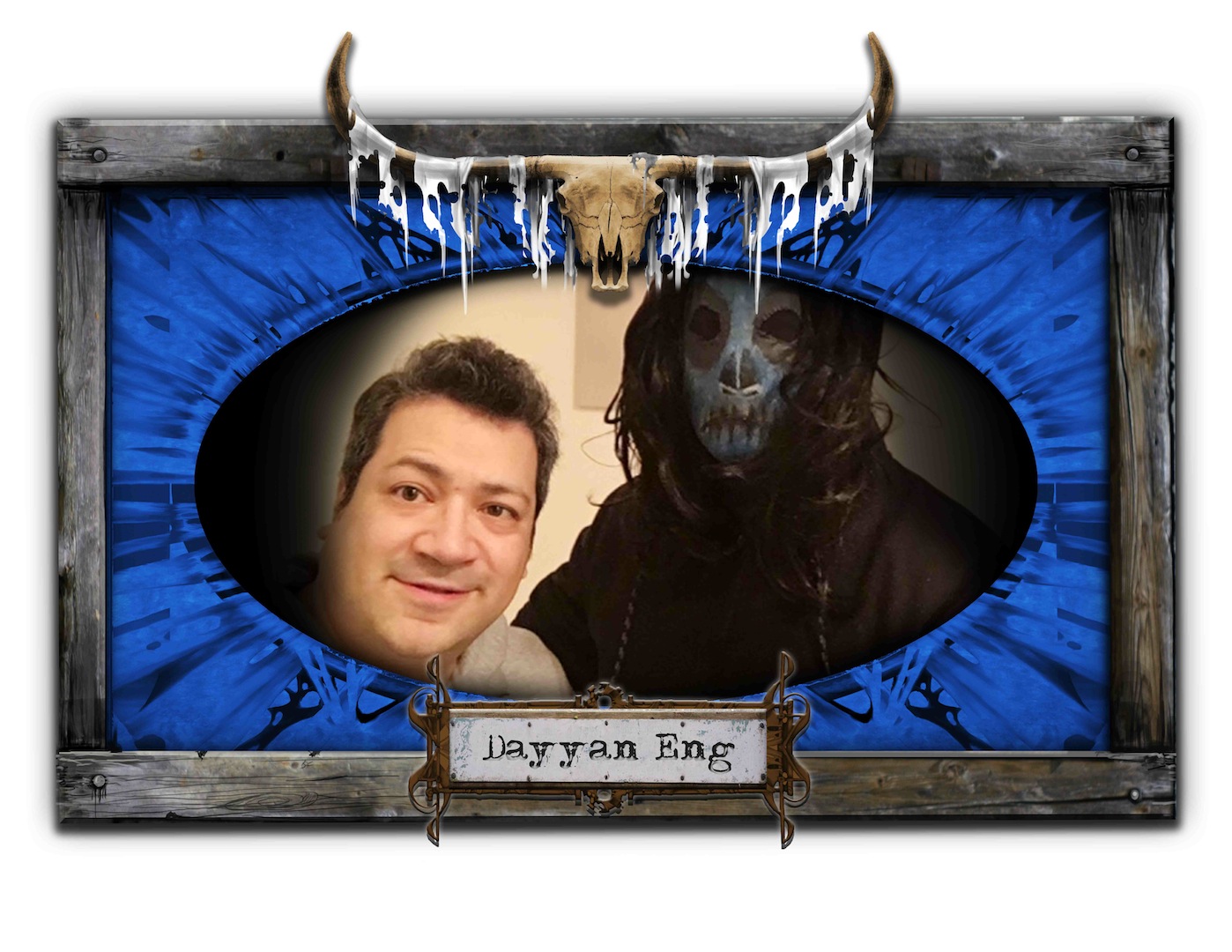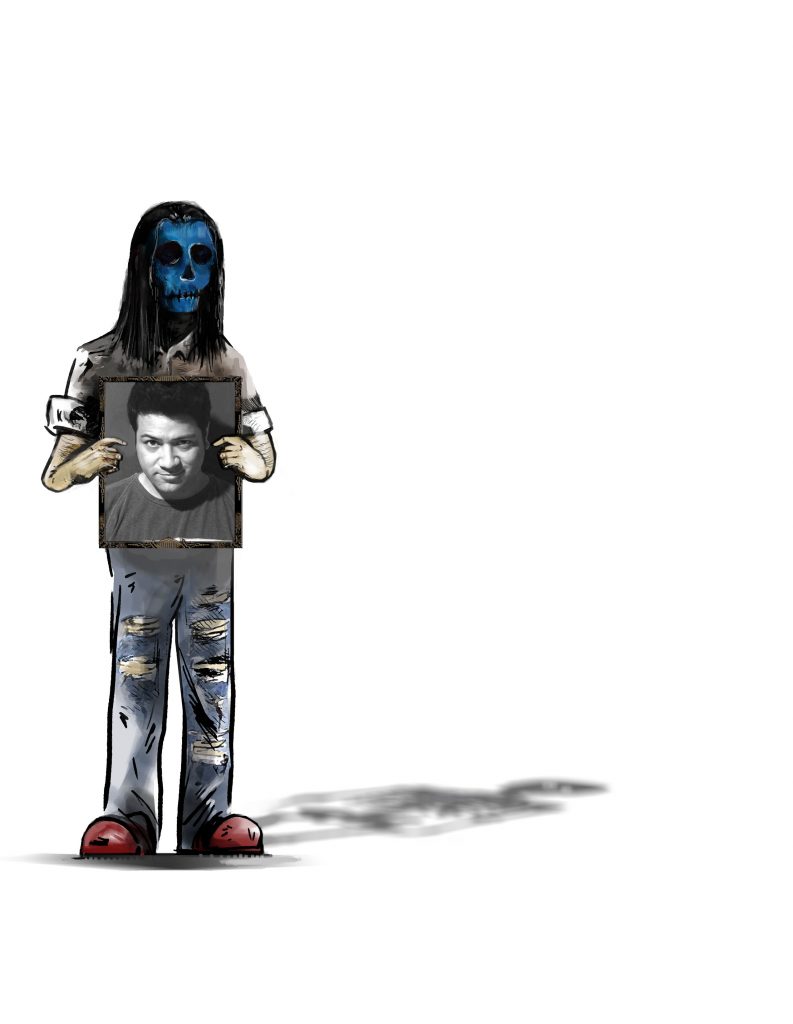Dayyan Eng: Chinese Film Director
I don’t know the multi-cultural Dayyan as the guy who’s broken movie records like directing the first Chinese short film to be invited to all three of the major film festivals: Venice, Cannes, and Sundance. Or that his first feature film got nominated for “Best Picture” at the Chinese academy awards. Or the guy that’s married to a movie star. I know him as a friend. A regular guy that I shoot the breeze with.
We got together January 20th, 2017 at his home in Los Angeles for this interview. That was the day of the Women’s March across the U.S. after the disTrumption that’s permeating nearly ever facet of daily life. We didn’t talk much about politics despite the current climate. Most Bahai’s generally avoid it and Dayyan is no exception. I tend to agree. After all, since when do politics solve many problems? It strikes me as more of a problem creator.
Instead, our conversation revolved around common Baha’i themes like unity and equality. There is a dream among that particular religious community: humanity will one day wake up and see one another as equal, but unique, individuals under a single common God to be loved and respected without prejudice. Lofty goal to be sure. I suspect it’s attainable if people actually do wake up.
The scary part is what will it take?
Without further ado, Dayyan Eng.

Q: What is your favorite sandwich and who makes the best one?
D.E. B.M.T. mixed with a little bit of bacon. Unfortunately, they don’t make one around my home in Beijing, but speaking of sandwiches, Paseo in Seattle is the best sandwich shop.
Q: What is your favorite meal your mom makes?
D.E. Ghormeh Sabzi. I’m half Persian.
Q: How did you meet your best friend?
D.E. At my surprise birthday party at a club in my early 20s.
Q: When or how did you find what you wanted to do?
D.E. As a kid I always wanted to make movies. In between that and actually doing it, all the adults in my life and their realities got in the way. So for awhile I was considering other things before I finally tried. If it failed, I figured I do something else instead of automatically taking myself out of the equation. I was around 14 years old, I think.
Q: How did you pursue it?
D.E. By going to film school. But more than learning about film theory and making student films, the real thing was getting the connections to get into the industry. In film school no one tells you how to get financing for your first film or how to get a job in the industry. True Story: After finishing film school at the Beijing Film Academy, I had a return ticket back home to Seattle and only 200 bucks left in my pocket. My folks wanted to know what my plan was. A week before my ticket was up I got a call from someone who saw my student film asking if I directed TV commercials. I said “I do now.” That’s how I got my first paid gig. That’s how I ended staying in China and starting my career.
Q: Did you have a mentor/mentors in pursuing it? Who were they and what did they do for you?
D.E. There have been a few, but as far as getting me to believe that besides being a director, I could also write scripts, it’d be Thomas Lee Wright, who was a Hollywood screenwriter. He was also a studio executive back in the day. I was reading a book he wrote about the film industry – this is back when I was thinking of getting into film as my major while still studying at the University of Washington. I randomly ran into him at a friend’s house one day. We got to talking, and then became friends. He suggested that as a new director, no one was going to just give me a script and that I should write my own script. He gave me a stack of screenplays to study, as well as many screenwriting books. At one point we even collaborated on a script. That was my first crack at writing a feature film screenplay. Even though it became apparent that project wasn’t going anywhere, the whole experience allowed me to have the confidence to write my own scripts and I learned a lot from the whole process.
Q: What do you dream of doing or are you doing it? If so then what is the goal?
D.E. I’m lucky to be doing what I’ve dreamed of doing and that’s making films. Because I’m in a unique position of being bicultural and bilingual, it’s a good time to be in that position because there are a lot of U.S. studios trying to crack into the Chinese market. At some point, I’d like to do a Hollywood studio film, mainly because it’s the only system that is able to release a film globally – though ironically, where I am in my career in China as a director, I probably get more creative freedom doing Chinese films than I would out here.
Q: What would your 15-year-old self say to you now?
D.E. There’s a lot I’d say, but I don’t know that he would listen. I’d probably say only work with people that are going to be decent or have similar ways of doing business, because life is too short. If you don’t, then you might end up working with people who aren’t on the same wavelength and it’s not worth the pain and hassle.
Q: If life were a person what would you say?
D.E. Can I get a hint?
Q: If you were in charge of the world and you have no restrictions, real or imagined, what is the one thing you would give it:
D.E. Edumication and Wisdom. Too many ignorant people (laughs).
Q: Has morality disintegrated to the point that we now need Yelp for people?
D.E. (Laughs) In a lot of ways, yes. But at the same time, I am bit of an optimist in that I think most people aren’t so bad. The ones that are bad, are just louder about it.
Q: How is society getting things right?
D.E. Inherently, most people deep down can tell the difference between what’s good and what’s not. In some ways, the world is still better than it was a hundred years ago. It’s a lot of “one step, forward two steps back,” but it’s still moving forward.
Q: What do people need in order to see each other as equals?
D.E. To understand that we all come from the same source and we are all created equal. That unity is the only way humanity is going to advance. We can make it quicker or slower. It’s up to us.
Q: Do we still need religion?
D.E. Yes. Updated religion. I believe the source of all major religions are one. Christians, Jews, Muslims, Hindus, Buddhists, Baha’is — the God or creator they all believe in is in fact the same Creator, the prophets are just teachers that came during different times – like grades in a school, all the teachers work at the same school, they just happen to teach kids of a different age – the right coursework for the right age group. At some point, as much as you love your first grade teacher, you have to move on to the next. And as society and mankind progresses, so do we have to seek out what the latest intended teachings for us are. What becomes fanaticism and dangerous is when people cling to their teacher and say “if you don’t believe in my teacher, you are doomed” or “I hate you for not believing in my teacher, because your teacher sucks” – it’s like, please, those teachers were all kicking back during lunch and hanging out together, you think they wanted their “students” to fight each other over them?
Q: Do you have hope for the future?
D.E. Yeah. But I’m not sure that I’ll be around to see it.
Hot topic of the week: This is an open discussion. Could be Gay marriage or Confederate flag, Donald Trump, for example.
D.E. Issues will always be there. Social media has made them much more visible. Stuff that used to be in a bubble is now on the street. Everything is everywhere now and it creates new ways for people to deal with each other. We need to look at each other as creatures created by the same creator. We’re not just labels and we can learn from each other.
Q: What are three things that work for you: For example, I can’t find a good razor. Because of an excessive requirement for massive profits I find that many products don’t live up their advertising. What works for you?
D.E. My Tesla is the best car I’ve had. It upgrades itself. The car that I drive now is better than it was when I bought it, how many other products can you say that about? Plus I haven’t been to a gas station in a couple years.
More thought-provoking questions:
1: Do Americans have the right to complain about immigration?
D.E. To a certain extent. I mean you still need rules, it can’t be a free for all, but – no, not really. Certainly not the way it’s being handled now. Thing is, there are already lots of rules in place for immigration. It’s not what some are trying to make it sound like. Besides the Native Americans, we really are a nation of immigrants. My ancestors came on the second boat after the Mayflower. Yet, because my grandmother married a Chinese-American, some people look at my last name and think I’m somehow less American than they are. I’m like if you wanna play that game, I’d win because when my great-great-great-great grandpa was roaming America, bet yours wasn’t even here in this country! You can see how that just becomes a pointless cycle of “well I was here first!” ? (laughs)
2: If our value system is based on scarcity then what of a human life, now that the population is in the billions?
D.E. I live in an “over populated” city, but I don’t feel like it’s too much.
3: Would life be easier if racism were accurate? (This is a question to get you thinking about racism. Often ideas of race are talked about as an absolute truth.)
D.E. Racism is “taught,” for sure! We are like different flowers in the same garden, that’s it, that’s a fact. People need to realize it’s just a pigment that sets our skin color apart. What’s coming with skin color is baggage. It’s a stereotype, obviously. Yeah… there are people who might fit a preconceived description, but that doesn’t mean a whole race fits that description! It’s easy when things are going bad; it’s easy to lash out at others who are different than you, racially or culturally. But it’s absolutely learned. When we are kids, we are color-blind so to say, it doesn’t even occur to us. It’s when the adults around us start saying things, just little remarks here or there, racists things we hear around us or on TV or at school, that’s when it gets learned. And unless our parents guide us in the right way, it’s easy to just copy others and believe the ignorant bigotry.
I didn’t realize what “race” I was, until I came to the U.S. Because I was living in Taiwan as a kid – a homogeneous society. My parents were friends with a couple in Taiwan, the husband was African-American. As a kid, I remember noticing his skin color was darker, but I never thought anything else about it. I didn’t even know what racism was – or that it existed, until I came to the US. I think by my teens it became something I was definitely aware of. In high school, sometimes on the basketball court I’d get called names. One time someone called me a “taco” – which I don’t know, was supposed to be because he thought I was Mexican? That dude didn’t even get the right insult (laughs).
What’s sad is watching kids spewing what their parents say. Some of them don’t even know someone of a different race.
Right now what’s being cited in the news is rough. There’s a brash disregard for what anyone else thinks.
4: What would you like to see written about you on your gravestone?
D.E. That I was a cool dude, good husband and good dad, and I contributed somehow to the betterment of mankind by way of whatever I ended up doing before I died. Oh, and, most of my movies didn’t suck.
Check out more on Dayyan here:






